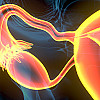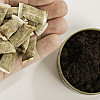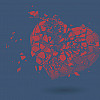Recent Blog Articles

Lead poisoning: What parents should know and do

How does waiting on prostate cancer treatment affect survival?

Does running cause arthritis?

Is alcohol and weight loss surgery a risky combination?

Preventing ovarian cancer: Should women consider removing fallopian tubes?

Healthier planet, healthier people

Is snuff really safer than smoking?

Will miscarriage care remain available?

Considering collagen drinks and supplements?

Does less TV time lower your risk for dementia?
Chlamydia
What Is It?
Chlamydia is a sexually transmitted infection spread by having unprotected sex with someone infected with bacteria called Chlamydia trachomatis. These bacteria are found in the urine and genital secretions of infected people. Chlamydia can affect several areas of the reproductive system, causing urethritis, vaginitis, cervicitis and pelvic inflammatory disease (PID). Chlamydia also can cause eye infections and pneumonia in newborns delivered by mothers who have chlamydia.
Chlamydia is one of the most common sexually transmitted infections. Infections occur most often in unmarried people under age 25 who have had two or more sex partners during the previous year. In women, chlamydia that is not treated can lead to infertility, chronic pelvic pain and tubal pregnancy, in which the fertilized egg implants and grows in the fallopian tube, rather than the uterus.
To continue reading this article, you must log in.
Subscribe to Harvard Health Online for immediate access to health news and information from Harvard Medical School.
- Research health conditions
- Check your symptoms
- Prepare for a doctor's visit or test
- Find the best treatments and procedures for you
- Explore options for better nutrition and exercise
I'd like to receive access to Harvard Health Online for only $4.99 a month.
Sign Me UpAlready a member? Login ».
Disclaimer:
As a service to our readers, Harvard Health Publishing provides access to our library of archived content. Please note the date of last review or update on all articles.
No content on this site, regardless of date, should ever be used as a substitute for direct medical advice from your doctor or other qualified clinician.
Free Healthbeat Signup
Get the latest in health news delivered to your inbox!
